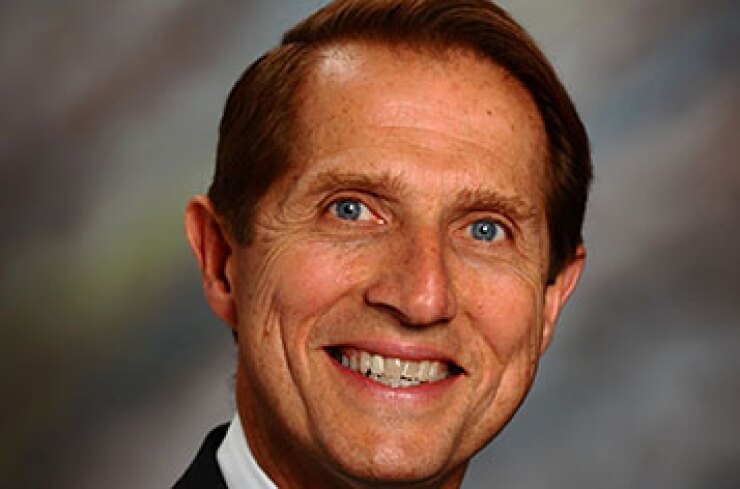
DALLAS -- TriHealth, one of the largest not-for-profit hospital systems in the Cincinnati area, is making its bond market debut Tuesday with a $300 million sale.
The system's first public offering is $300 million of fixed-rate bonds, with Hamilton County as the conduit issuer. TriHealth will privately place another $100 million of variable-rate paper.
Proceeds will fund the expansion of its ambulatory services, allow it to purchase multiple properties that are currently being leased, and refinance bank loans for savings.
The system is refinancing approximately $150 million of loans and approximately $173 million related to the termination of a capitalized lease. TriHealth plans to use the remainder to fund capital projects.
Fitch Ratings and S&P Global Markets both assigned first time ratings of A-plus ratings to the bonds. The outlook is stable.
"Establishing our own independent credit--and borrowing on that credit--will allow TriHealth to take advantage of historically low interest rates, while also increasing our flexibility to fund the capital investments that are necessary to provide the best possible services and facilities for our patients," said TriHealth's chief executive officer, Mark Clement.
TriHealth expects to capture more than $95 million in savings over the next 30 years.
S&P said that the rating reflects its view of TriHealth's historically solid overall financial profile.
"Over the years, TriHealth has seen its utilization statistics grow in the areas that we would expect while inpatient utilization has been relatively flat," said S&P. "While it operates in the highly competitive Cincinnati market, TriHealth remains a market leader and continues to affiliate with key physicians and other entities to further expand its footprint in the market."
Bank of America is lead manager and Fifth Third Securities is co-manager. Kaufman Hall & Associates Inc. is the municipal advisor and Dinsmore & Schol LLP is bond counsel.
TriHealth plans to buy out capitalized leases of nearly $200 million with the bond sale. It is considering the purchase of its Bethesda Butler Hospital building, the Group Health West Chester medical office building, TriHealth Kenwood medical office building, Good Samaritan Western Ridge medical center, TriHealth Anderson medical office and Good Samaritan Hospital Medical Office Building.
There are no further new debt plans. However over the next five years, TriHealth may spend as much as $750 million on routine and strategic capital with $500 million used for strategic spending, according to S&P. TriHealth plans to construct a new ambulatory care facility in southeastern Liberty Township. The new site will allow TriHealth to consolidate its physicians and other ambulatory services that it has expanded over the years into one site. Management reports that this is a priority for the growing area.
TriHealth is also planning to build out a new inpatient floor as well as renovate and expand the Bethesda North Catheter Lab, and is in in the early stages of planning for a new medical office building.
"TriHealth has embraced and our board has adopted a very ambitious plan to emerge as market leader within greater Cincinnati area," said Clement. "We are already the largest but our ambition is to be the best."
TriHealth came together in 1994, when Bethesda and The Sisters of Charity Health System Inc., now Catholic Health Initiatives (CHI), entered into a joint operating agreement (JOA). Both retain their separate corporate identities.
The obligated group consists of TriHealth Inc., TriHealth, Bethesda Hospital, TriHealth Hospital, TriHealth Physician Enterprise Corp., TriHealth G LLC, and Bethesda Healthcare Inc.
The JOA between Bethesda and CHI mean both must approve the TriHealth strategic plan and approve TriHealth's operational and capital budgets.
Andrew DeVoe, CFO at TriHealth, said in an investor presentation that the JOA provides for equal sharing on net income between Bethesda and CHI. No party in the JOA can take any action that would cause any party to fail or meet obligation related to JOA's tax exempt debt.
As sponsors, Bethesda and CHI may take up to $10 million annually from the TriHealth system. However an asset withdrawal can't be made if it would endanger the status of tax-exempt debt.





